SUMMARY
This is AI generated summarization, which may have errors. For context, always refer to the full article.
![[Newsstand] The meaning of Maria Ressa’s Nobel Peace Prize is ‘manang-hood’](https://www.rappler.com/tachyon/2021/12/tl-rappler-manangs.jpg)
The four founders of Rappler are fondly called Manangs by the people who work with them; even some people outside work have taken to calling them that too. The term “manang” means “older sister” in some Philippine languages; its likely root is the Spanish for sister, “hermana.” (And from the Spanish for “older brother,” we may have gotten “manong.”)
But the terms are also used as a friendly honorific: They describe an older person worthy of respect. It is different from an honorific like “Gat,” which because it is ennobling (it is best understood as a title of nobility) is also estranging. Gat Jose Rizal is someone we look up to, usually from a distance; Manong Pepe Rizal is someone we know quite well, whom we can have a beer with.
The Filipino farm workers who immigrated to the United States in the 1920s and the 1930s were called manongs then, and are forever remembered as manongs now. Many of them were from the Ilocos, whose language uses the term in the sense of older brother. They were not, they could not have been, all older brothers, but they were old familiars, and deserving of respect.
But in Filipino culture, the role of the older sibling is burdened by real responsibilities; the manang and the manong are like surrogate parents, who help look after, who help raise, and in some instances who help pay for the education of, the younger siblings.
This must have been why the nickname for Maria Ressa, Glenda Gloria, Chay Hofileña, and Beth Frondoso stuck; the members of the organization do not see them as parents but as older sisters. They are persons of real authority, but their leadership is not an exercise in control but rather in participation, in a shared responsibility. Theirs is the authority of the older sibling.
I like this metaphor very much, because it is familiar and familial. It is also very Filipino; our culture prizes the role of the “kuya” and the “ate” at the same time it imposes a burden on them. The respect is real. The image is also very much in keeping with the growing sense among journalists that journalism itself is changing; the old expectation and traditional ideal of the journalist as sole gatekeeper of information must give way to the reality that the function of gatekeeping is now a shared one. When we journalists rethink our role in society, we can do worse than reimagine ourselves as the older siblings of democracy.
Our role in the democratic project is to serve as surrogates, caregivers, co-educators.
But in the last generation or so, manang and manong have acquired a new but related meaning. We also use the terms now to refer to the janitors, the groundskeepers, the service workers, the utility staff, the maintenance personnel, who help keep our institutions running. When we address a cleaner in our building or a “caminera” in our neighborhood as manang, we accord them respect and we acknowledge their work; we may not know their names, but we recognize that a relationship between us exists.
That relationship is one of service; they serve us, and addressing them as manang is a small gesture of acknowledgment, if not necessarily of open gratitude.
A few years ago, at an open-air forum at De La Salle University, I noticed some manongs and manangs cleaning in one distant corridor while the program was underway, and it occurred to me that that chance image was telling me something important, something real, about journalists, and by extension about journalism itself.
Journalists are the utility workers of democracy.
We serve an institution, and if the institution of democracy is fully functioning, we remain in the background; we do our job away from public attention. But when the institution is dysfunctional, when the garbage piles up and we are hard-pressed to clean up the mess, that’s when our work may get noticed. When those temporarily in charge of the institution turn on us, take away our tools, harass us as we clean house, we have no choice but to go public and raise a stink.
Service to the institution
I like this metaphor very much, because I see it as much more in keeping with both the everyday reality and the constant self-image of the common journalist: We are the people who serve the institution by picking up the trash on the ground or cleaning the windowsills on the upper storeys of democracy. We help make sure the institution functions the way it was meant to, by cleaning the toilets and mopping the floors, and if we sometimes mistake our daily closeness to the administrators of the institution as a sign that we are VIPs too, that’s an occupational hazard, not our occupation.
Our occupation is manang-hood: service to the institution, which happens to be the democratic project itself.
We should not begrudge ourselves the small and large victories that come our way; we should not be falsely modest when we are occasionally referred to as champions of the freedom of expression, crusaders for truth, the conscience of the nation. But at the same time we should not get carried away; we are, at core, utility workers.
I found it heartwarming to hear Maria describe herself, upon receiving the news that she had been awarded the Nobel Peace Prize, as a “placeholder” for all journalists. Simple, service-minded, even utilitarian, and true.
She is that, indubitably. But she is also herself: When she and Rappler came under relentless attack from Dutertismo, attacks amplified by the avaricious algorithms of social media, she and the other Manangs did not only hold the line; they held their extended family close and cared for, and doubled down on cleaning house. It’s what Manangs do. – Rappler.com
Veteran journalist John Nery is a columnist and editorial consultant of Rappler.
Add a comment
How does this make you feel?

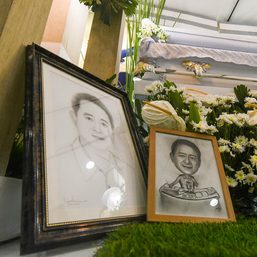
![[OPINION] You don’t always need a journalism degree to be a journalist](https://www.rappler.com/tachyon/2024/06/jed-harme-fellowship-essay-june-19-2024.jpg?resize=257%2C257&crop=287px%2C0px%2C720px%2C720px)



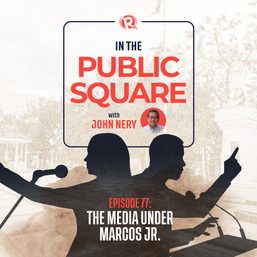
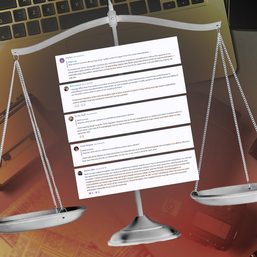
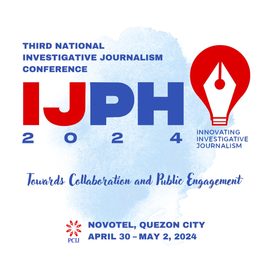







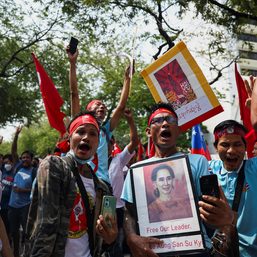








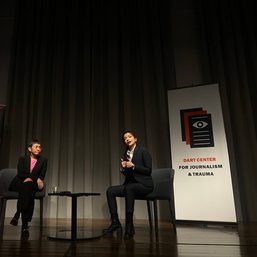


There are no comments yet. Add your comment to start the conversation.